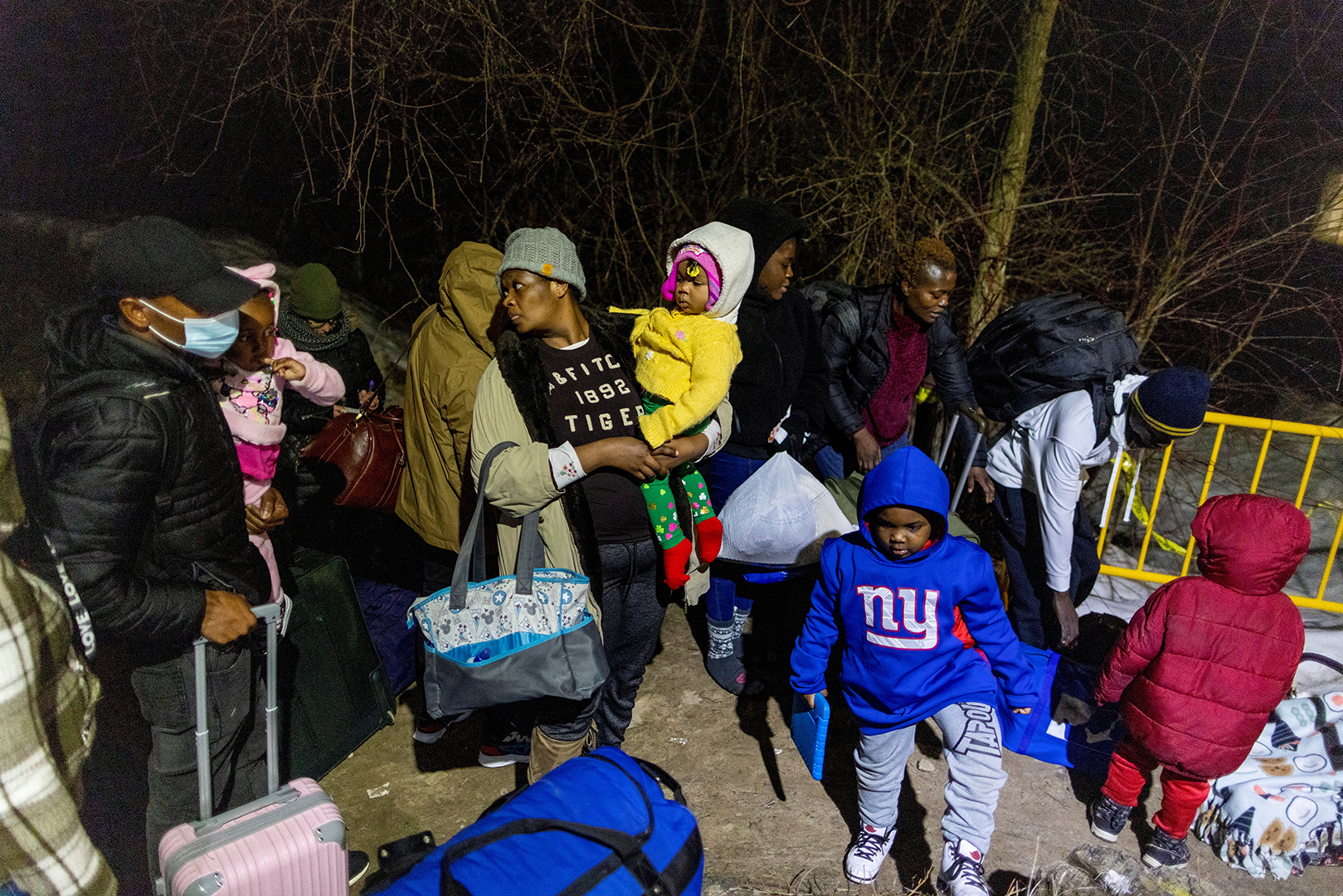
(Photo: CGTN)
Dozens are protesting the expansion of a bilateral asylum treaty between the U.S. and Canada after eight people died last week trying to cross the border.
Under the Safe Third Country Agreement (STCA), migrants seeking refuge in the U.S. or Canada must make their asylum claims in the country where they first arrive.
This agreement applies to the entire 9,000 kilometer land border between the two countries, including official ports of entry and unofficial pathways.
While the STCA took effect in 2004, it previously only covered official ports of entry. Migrants attempting to cross were turned back and told to apply in the first "safe" country they arrived in.
U.S. President Joe Biden and Canadian Prime Minister Justin Trudeau recently amended the agreement to include the entire land border.
Critics argue this agreement pushes migrants to attempt to cross the border through deadly, informal routes and can reduce possibilities for claims of refuge in Canada.
Canada and the U.S. say the STCA helps manage the world's longest land border, Reuters reports.
"More will die trying. Their crossings will be in more remote, more isolated and more dangerous places," University of Winnipeg law professor Shauna Labman said to the Toronto Star.
Last week, eight people from two families died while trying to cross from Canada to the U.S..
Of the two families, one was of Romanian descent and the other Indian citizens.
Two of the children who died had Canadian passports, the Toronto Star reports.
The migrants died while crossing the St. Lawrence River near Quebec.
Protesters against the STCA are demanding the treaty end and all migrants get permanent resident status.
They also presented a petition with thousands of signatures to Canada's Public Safety Minister.
A constitutional challenge to the agreement is also being considered by the Canadian Supreme Court.
In late 2020, a Canadian lower court ruled the deal violates the constitution, arguing that returning migrants to the U.S. would 'deprive them of life, liberty, and security,' a tenant of Canada’s charter, according to Forbes.
That decision was appealed to Canada's Supreme Court.
The federal government argues the U.S. immigration system is "fair and just."
Canada’s Supreme Court has yet to publish a decision on the matter.
While migrant crossings along the U.S./ Canada border are significantly lower compared to the U.S./Mexico border, the northern border has seen a rise in crossings in recent years.
In 2022, almost 40,000 migrants entered Canada through Roxham Road, an informal crossing between New York State and Quebec province, according to the CBC.
Although migrant crossings at the northern border increased under the Donald Trump administration, as undocumented migrants attempted to avoid deportation, unofficial crossings continue Forbes reports.


